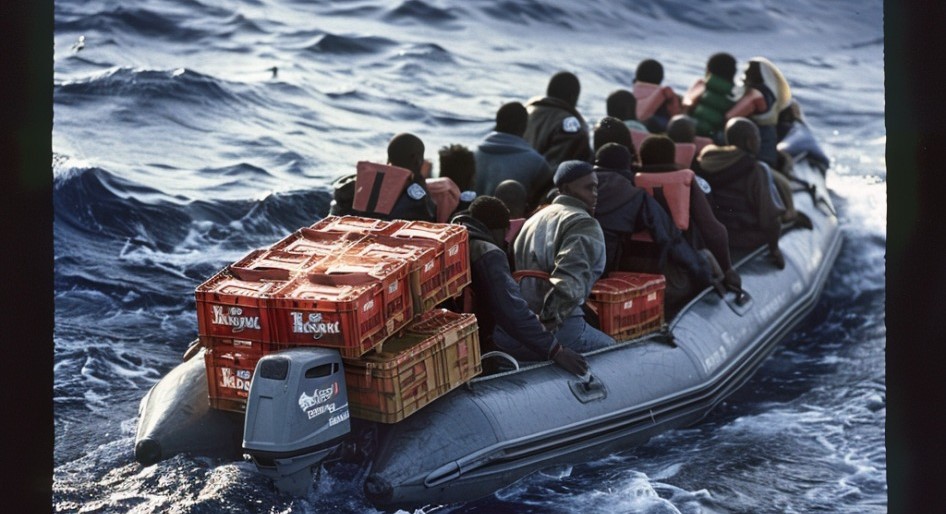Support for dinghies as a mode of transportation across the English Channel has skyrocketed among a certain demographic: those seeking to save a few pounds on duty-free booze and cigarettes. As reports circulate of asylum seekers allegedly smuggling in tax-free goods along with their hopes for a better life, some Britons are beginning to see the silver lining in the influx of maritime arrivals.
“If we can’t stop the boats, we may as well save dosh on French plonk,” quipped one enthusiastic supporter of the unconventional trade route. “Who knew dinghies could offer such bargains?”
The newfound popularity of dinghies among those with a keen eye for fiscal responsibility has sparked debates about the unintended consequences of lax border control policies. While some view the situation with concern, others see it as an opportunity for entrepreneurial spirit to flourish in the face of adversity.
“I’ve always said necessity is the mother of invention,” remarked a local entrepreneur, eyeing the potential for a new business venture in dinghy rentals with a cheeky grin.
Meanwhile, critics warn of the broader implications of turning a blind eye to the irregular flow of goods and people across national borders. They argue that prioritizing personal savings over border security sets a dangerous precedent and undermines efforts to maintain law and order.
As the debate rages on, one thing is clear: the humble dinghy, once seen as a symbol of desperation, is now emerging as an unlikely hero in the quest for affordable libations. Whether this trend will lead to a re-evaluation of border policies or simply a spike in dinghy sales remains to be seen. But for now, at least, it seems the dinghy is riding the waves of unexpected popularity – duty-free booze and all.
















